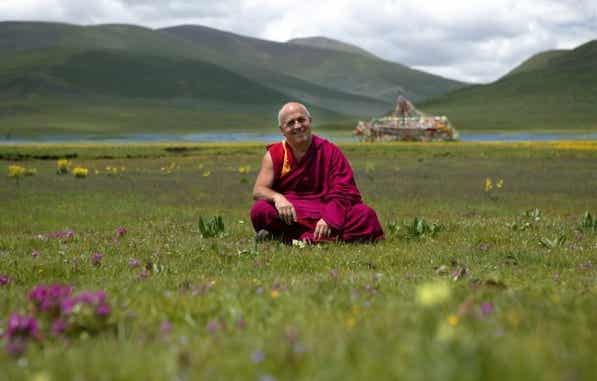
Last update: April 16, 2017
Almost all of you will surely have said at least once that it's not nice to think only of yourself. Morality, religion and the values passed on in the family say so. Yet, as in all dogmas, there is a hidden message between the lines. It tells us that the human being is selfish by nature and that to be virtuous we must fight against this tendency.
With the development of neuroscience, however, we have discovered that things are different. All this has not so much to do with a "virtue" as with the human being's need for survival. The ability to look beyond oneself is a sign of the evolution of our intelligence. And as if that weren't enough, altruism has also been shown to increase serotonin levels and, therefore, the feeling of happiness.
"The only acceptable selfishness is the will to make sure everyone is okay, so that they get better."
-Jacinto Benavente-
Matthieu Ricard, son of Jean-François Revel, a famous French philosopher, also supports the validity of these principles. Ricard is a highly regarded molecular biologist who at some point in his life decided to become a Buddhist monk. He participated in prestigious brain research conducted in the United States. Then, he decided to go to Nepal, adopted the local lifestyle and stayed to live there.
Thinking only of ourselves destroys us
Matthieu Ricard is convinced that selfishness is, first of all, a source of unhappiness. Being so focused on the ego leads us to adopt a paranoid position. Without realizing it, we spend all our time thinking about how we should preserve that ego, how to exalt it or how to make it prevail over others.
Thinking only about yourself fills you with fears. To love means to break the bond with that ego, to allow it to dissolve in favor of other bonds. Self-centeredness, on the contrary, leads us to build walls. It puts us on the defensive. For this reason, we always feel threatened and, in a sense, even alone.
Furthermore, if we spend all our time thinking about our problems, we significantly limit our perception of the world. This habit derives from our difficulty in looking at reality from another point of view. We no longer contemplate the possibility of being surprised. Our daily emotional experience becomes very limited and easily loses sensitivity.
Selfishness leads to unhappiness
According to Matthieu Ricard, the human being is a double-faced wolf. The first is that of the cruel wolf, who thinks only of himself. The second is that of the wolf who watches over the good of the pack. Which of the two wins? What we decide to feed.
According to the Buddhist monk, thinking only of ourselves leads us to indolence. Furthermore, we must know that from indolence to cruelty, the step is short. In this state, only thoughts of indifference or hatred will appear. We begin to hate others as a strategy to exalt ourselves. We become convinced that others are bad, and we are good. That others are stupid, and we are brilliant.
When we get trapped in this dynamic, our smile goes out. Anger becomes the predominant mood. Others are no longer a source of happiness, but of misfortune. Everyone disturbs us, annoys us; all those who do not perform the task of feeding our ego. In this condition, it is easy to fall and sink into resentment.
Altruism is a higher level
When conducting brain studies, Ricard found that helping others makes people truly happy. In fact, being more supportive is a method that is used to lift the spirits of the people who suffer from depression.
Solidarity, in fact, has an opposite effect to selfishness. The more selfless we are, the more sensitive we become to the world. Our mind and heart open up to understand the reality of others, and this makes us more perceptive and intelligent. Furthermore, it allows us to see things from different points of view, and this enriches us on an emotional level and also allows us to build relationships of higher quality.
For Matthieu Ricard, the highest level of solidarity is compassion. The monk refers to historical events to confirm this thesis. The world, in fact, is progressing towards ever more elaborate forms of compassion. The recognition of human rights, the rights of women and, recently, also the rights of animals, are proof of this evolution.
According to him, therefore, a great revolution is already underway in the world, which he calls "compassion". In the short term this could generate the necessary conditions for economic improvement; in the medium term for an improvement in the quality of life; and, in the long term, for the preservation of the environment and ecosystem.
The Buddhist monk assures us that, little by little, we will realize that there is only one path that humanity can take to continue to exist: that of cooperation.


























